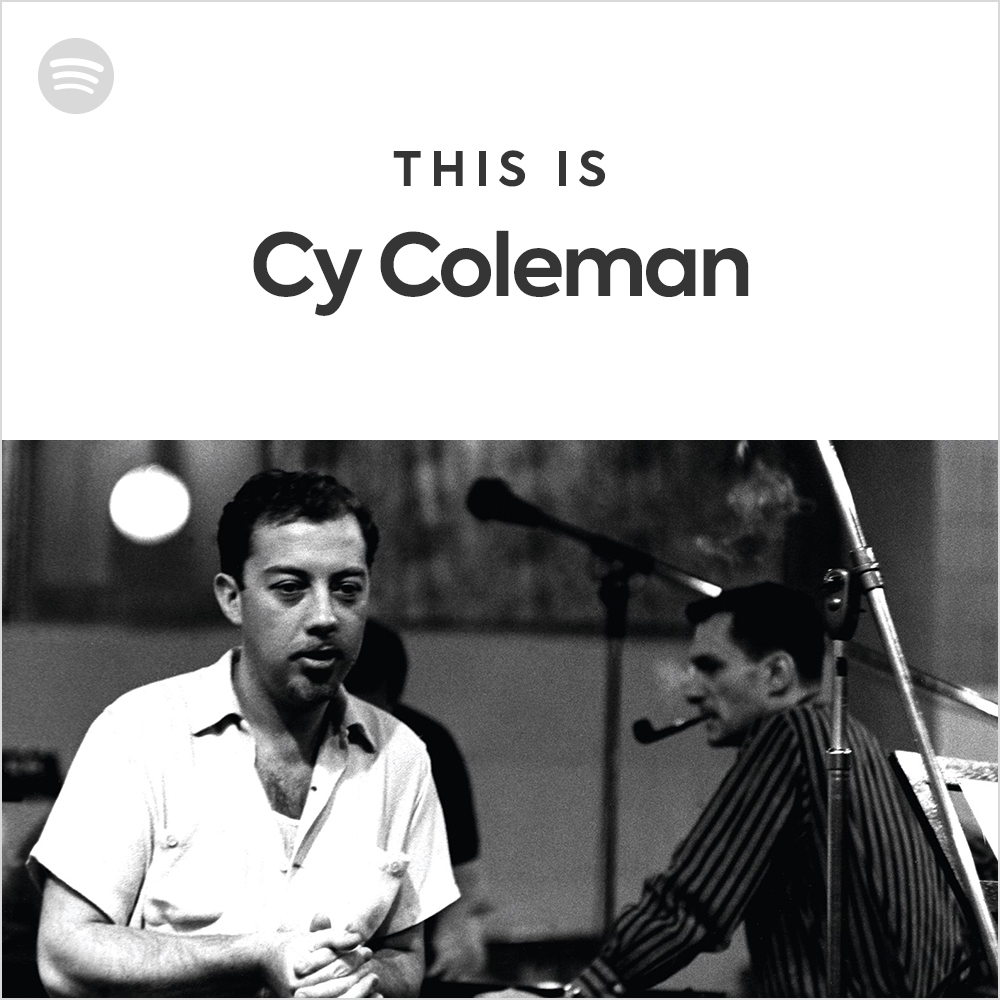
Cy Coleman
A note from Shelby Coleman
Everybody knows Cy Coleman’s music. Cy had a shelf full of Tonys and Grammys and received just about every accolade an artist can receive, but he never became a household name. Why? His theory was that he wasn’t easily categorized and that critics couldn’t figure out who he was. That’s because he wanted to experiment in every genre, including classical, jazz, pop, and musical theater. He said, “I want to use all the colors in my palette.”
Cy’s life was never boring. As his wife, I had a front-row seat to that life. Cy was the King of New York. Presidents and movie stars, as well as waiters, ushers, and the mounted cop who policed Broadway, called him Cy. His easy smile for everyone was real.
He had a razor-sharp wit and was never at a loss for a quick retort. Once, while practicing scales in his rented apartment on Fifty-seventh and Third, an upstairs neighbor called and said, “If you don’t stop that piano playing instantly, I am going to jump out the window!” Cy replied, “My, you are a good sport.”
People would ask him, “how do you write a song? Inspired by nature or emotion?” He would say, “No, it’s not like the cliché of a composer sitting in front of the piano, pencil in hand, plinking out notes.” He’d point to his temple and tap it as he said, “It’s all right here, Opus 1,2,3. It’s already in my head.” Cy was great at avoiding the “secretarial work” of putting the notes on paper. Pruning his trees at the beach house or helping me rearrange bookshelves was a good enough excuse.
He told me he had at least three hundred songs in his head that he hadn’t written down yet, just waiting for the right place. “A few of them are pretty good.” He said.
When working on a show or preparing to play in public, he became completely absorbed in the task and wasn’t easy to live with. The people around him became invisible: his temper and his patience ran short. He always felt bad about it and made amends – after the show.
Cy worked and played hard. Sports cars, gambling, and playing jazz late into the night eventually gave way to beach vacations, travel, and reading big books by the pool. He could relax and forget about work better than anyone I ever knew.
I don’t believe there was any separation between Cy’s everyday life and music. Upon landing in Paris, Cy told me to be very quiet and listen to the beat of the city. “it’s very different than New York. Do you feel it?” He heard music and rhythms everywhere. No one could get the drop on Cy. He swore that he could hear the criminal intent in someone’s footsteps. Very useful in New York City.
Cy’s workday started in bed; he never scheduled anything before noon if he could help it. He read all three daily papers, in bed with his coffee and me, and later our baby, Lily Cye. From there he worked the phones, lingering as long as possible. His call list was long, and he made sure to touch on at least three projects every day. “You have to keep a lot of balls in the air; you never know what is going to pop first.” He said. I learned everything I know about show business from listening to his morning calls.
Among other things I learned:
- Never say “never,” especially in show business. You are bound to work with the same people again, like it or not.
- Always call the losers after an awards show. No one else does.
- Return every phone call right away, no matter how much you don’t want to.
- People always like their own ideas best.
- Don’t worry so much about what people think about you, because so few people do.
Cy knew exactly what he wanted to do from the age of four. He honed his craft with laser like ferocity and created a life built on one thing: music. Cy told me shortly before his sudden death that he couldn’t have married any earlier than he did: “Wouldn’t have been fair to the woman. Music was my mistress.” I am glad that he felt he had finally achieved enough in music to settle down and enjoy a family life. He brought the same engaged, focused, and brilliant mind to being a husband and father.
Having a baby really tickled Cy. He welcomed her in the office and the theater and showed her off at every opportunity. The last day of Cy’s life found him sitting in a miniature chair, built for kindergartners, boasting lovingly about his four-year-old daughter to her teachers.
I was lucky enough to know Cy pretty well. A great and good man.
—
Cy Coleman Playlist
